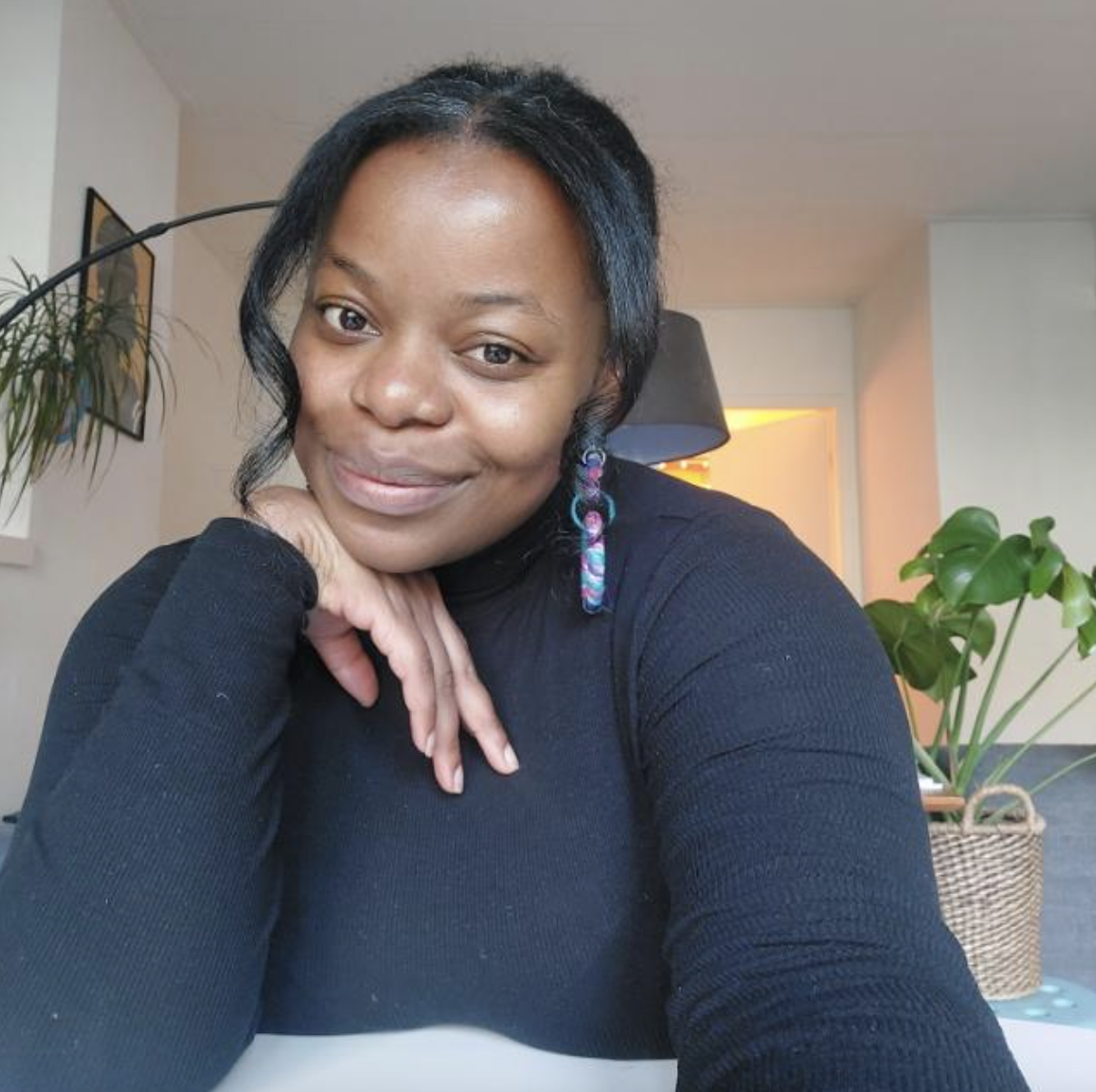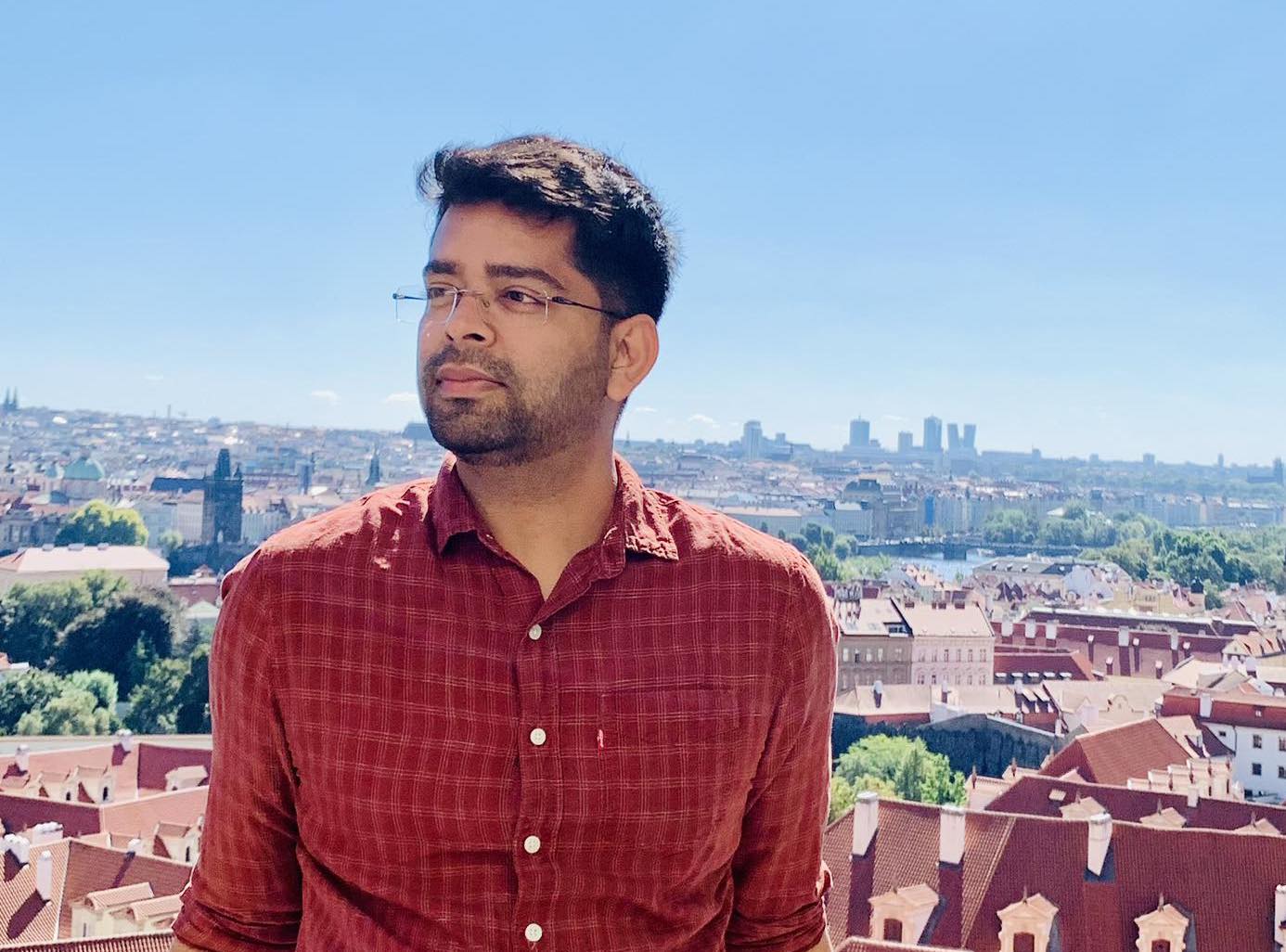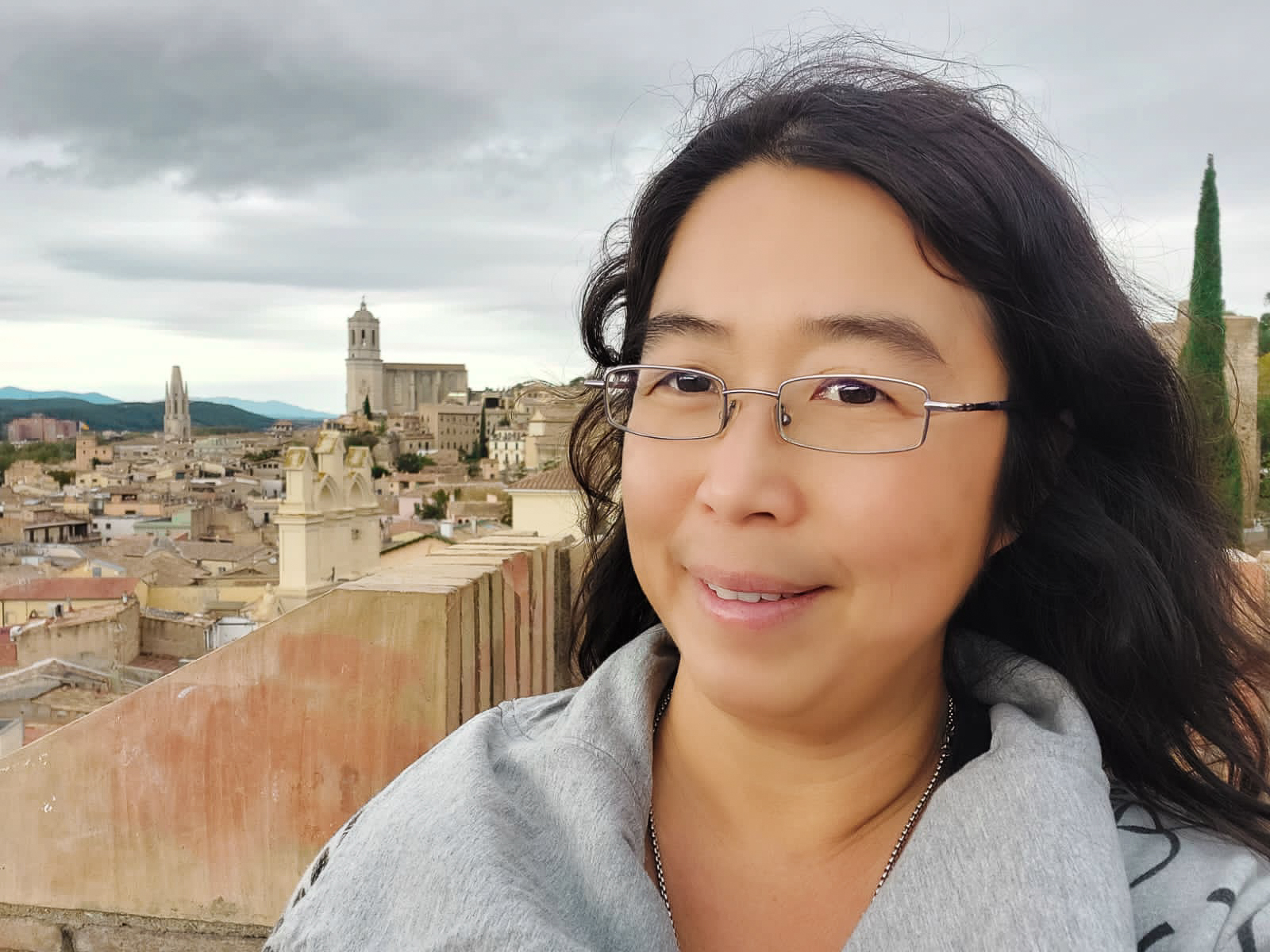About Engracia
Solopreneur Engracia tells us about her life journey from Angola and Germany to the Netherlands, inspiring us to look for our career purpose and consider entrepreneurship abroad. Keep reading to get some tips on how to move and work in Rotterdam if this is your dream, or simply discover what the city has to offer!


Please tell us everything about you!
I was born in Angola in the year 88. So, 88-babe! After 10 years living there, I moved to East Germany to live with my dad. It was the 90s and there were no jobs back then, so we moved across Germany, finally settling in Neuss, a city close to Düsseldorf, which became my home. A few years later, as an adult, after realizing that I had been feeling unfulfilled in this city, I decided to travel to find a new place. I was looking for the right mental space. I could finally find it outside of Germany, in Rotterdam, in January 2014, where I regained my power and my happiness.
How did you get to move to Rotterdam?
It’s an interesting story! I had already visited Rotterdam with my family in 2005 and told my auntie that one day, I would move to this city. Everybody laughed back then, but fast forward 9 years, I found, totally by chance, that there was a company in the Netherlands looking for a German speaker for the Austrian market. I was not Austrian and did not even know the Austrian market, but I thought that I could give it a try, so I applied. I did well because I got the internship and it kickstarted my new life in the Netherlands.
What were your first impressions of Rotterdam, vs. how you feel about the city now?
When I first saw Rotterdam, it gave me New York City vibes, with its skyscrapers and a sense of limitless opportunity. I had always been career-oriented, so I thought back then “If I make it to work in one of those skyscrapers, then I make it in my career!” Rotterdam just seemed like a place where I could achieve significant career growth. The city had such a vibrant entrepreneurial spirit, especially with its bustling ports, busy financial district, and diverse business communities. My impression is the same today: Rotterdam feels like a place where you can achieve career success. Also, this city is never boring! For old and young, there is always something to do.


How do you compare living in Rotterdam to your previous experiences in Germany and Angola?
Rotterdam has been a game-changer for me. Compared to Germany, it’s more welcoming and more vibrant. I have also lived in big cities in Germany, like Düsseldorf and Cologne, but still, Rotterdam is definitely more lively. Angola, on the other hand, presented more challenges due to its developing status. Rotterdam’s vibrant lifestyle and numerous opportunities for both work and leisure make it an attractive place to live. It is really my home now.
Talking about Angola, do you plan to visit it again?
Definitely! I am from Luanda, the capital, and did not get to travel around the country as a child so I want to go back with my son and visit other cities. Our previous trip was limited due to challenges in transportation and logistics. There is no well-established public transportation system like in the EU. In Angola, if you want to go somewhere, you have to know people, who will then guide you there. Despite all that, Angola is a country with immense potential and a rich culture, and I want to explore more of it. Next time, the plan is to hire a tour guide with a car to navigate the country safely and freely.
Like I said back then: “If you make it in Rotterdam, it’s like you make it in New York”
You’re an entrepreneur. Could you tell us about your journey into entrepreneurship, from your early days as a freelancer to starting your own business?
My entrepreneurial journey began in Germany, where I started working as a freelancer, assisting beauty and wellness companies with sales and customer acquisition. I started doing it when I was 17, alongside my studies, which gave me a taste of setting my own prices and writing my own invoices. I eventually worked in corporate roles to gain some experience, but I always knew I wanted to own my business someday. I transitioned to entrepreneurship after experiencing burnout. It was a period of self-discovery where I understood that I was not connected to my purpose and that the money I was earning in the corporate world was not making me happy. Entrepreneurship was the path I needed to pursue for self-realization.
When you are in this state of burnout, especially abroad, how do you move forward? Your system of support, your family, and your friends are not by your side.
I have always been into personal development so I have read some books about burnout, and I could identify what was going on when I started feeling down. The reason for this fatigue was that I was not doing what I had promised myself to do, so I quickly realized that applying to another random job would not help. This gave me the strength to get up and ask myself what it is that I need to do to feel fulfilled. I started writing down what my skills were and what solutions I could find to current problems in the beauty industry. I realized that I could support women-led beauty brands with their sales, so I started building my website. This actually brought my energy back and allowed me to leave that burnout phase.
Something I also have to mention is that I have always worked and had good jobs so, I had savings for at least 1 year for my son and me to live comfortably, which gave me time and peace of mind to go for what I wanted.



How does becoming an entrepreneur in the Netherlands compare with becoming an entrepreneur in Germany?
Actually, in the Netherlands, it was surprisingly smoother than in Germany. Registering a business was straightforward. You just have to make an appointment at the Chamber of Commerce, provide a brief description of your business, and pay a small fee – 50 euros at the time. It was so easy I wondered if someone was pranking me!
In contrast, Germany’s bureaucratic process is more complicated and takes a lot of time. It is also important to note that the Netherlands has a vibrant entrepreneurial community with plenty of resources, including networking events, financial grants, and government programs, making it easier to build a business here.
For those who are thinking about moving to the Netherlands, what would you recommend them to do?
First of all, don’t give up the space you are living in right now, don’t jump into cold waters. You can come to look for a flat first, which is quite difficult, but I suppose it is a European problem (there are not many flats available, only rooms).
I would also recommend looking for a job, but also for a community to connect with so that you don’t feel lonely. Facebook groups are your best bets. People are always active and helpful, especially women groups. Also, I would recommend that you come with an open mind and no expectations of how things have to be. Just let life happen to you, and you might be pleasantly surprised.
And last but not least, the first time you file your tax declaration, don’t do it on your own. It’s all in Dutch and a bit difficult to get. Look for free organizations that can help you. This is the mistake I made back then and ended up paying what I should have actually received.
When you feel burned out, ask yourself “What is it that I need in my life for me to feel fulfilled? For me to get my happiness back?”
How well can you live without Dutch in the Netherlands?
In big cities like Amsterdam or Rotterdam, you can live pretty well without Dutch, but it was important for me to speak the language. It opens up a new world to you, in my opinion. You can connect with more people. On top of my expat friends group, I have my Dutch friends group and, so I have a whole community thanks to opening up to the language and the culture.
How would you recommend people find jobs or start businesses when they move to the Netherlands?
For those seeking jobs, especially EU citizens, job search platforms like LinkedIn and Indeed are great places to start. Employment agencies like Uniq and Adams Multilingual can also be helpful (I used to always get job offers from them).
For non-EU citizens, securing a working visa can be more challenging, and I recommend seeking companies registered with the IND (Immigration and Naturalization Service) who can help with visa processes. It is difficult but not impossible, especially if you are a specialist in your field.
Starting a business in the Netherlands is facilitated by networking and getting to know the local entrepreneurial ecosystem, as well as the institutions that can support entrepreneurs. Joining Facebook groups related to entrepreneurship, housing, and expat communities is a great way to connect with people who can offer guidance and support.
I gained my power back, just by knowing what to do next.


Conclusion
It was so insightful to talk with Engracia about her life abroad in the Netherlands, her entrepreneurship journey, and how she overcame burnout. She is currently working on growing her business while continuing to experience the bustling life and richness of Rotterdam.
You can always reach out our Interviewee by checking out the below links 🙂



